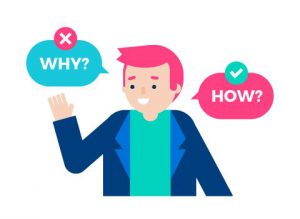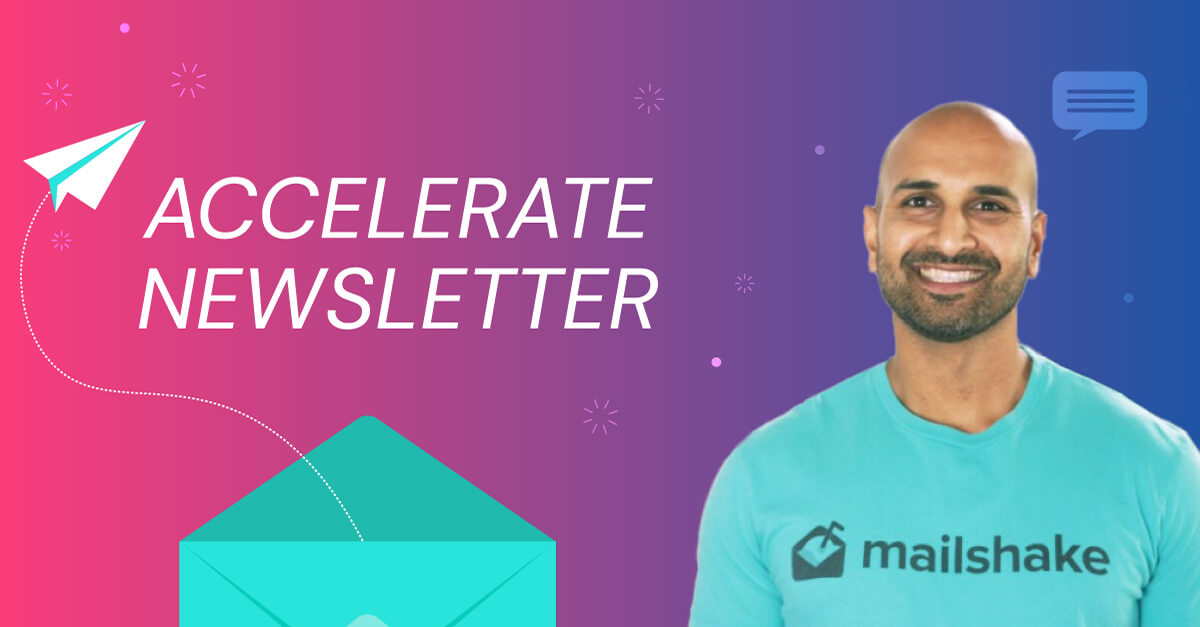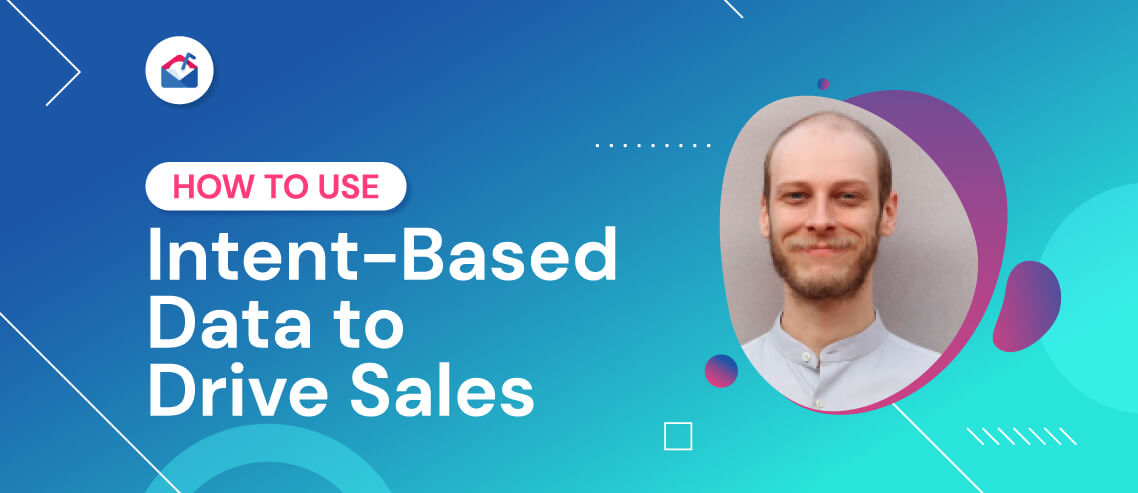Marketing Agency Strategies and Elements for Growth

Contents
These days, running a lean marketing agency is more important than ever. This means putting employees and clients at the center of your agency’s strategy to develop a better service offering.
Running a lean agency also requires focusing on where the work is actually happening and making it easier to unleash your team’s creativity. In addition, it requires making small changes each day that improve your processes and add up to a more efficient and profitable agency than ever before.
To get more with less or scale your agency to new heights, you’ll need a growth mindset, the right tools, and some fresh tactics.
5 Strategies to Make your Agency More Profitable
1. Partner With Other Companies
Very few successful agencies make it to the top without building some strategic partnerships along the way. Look for other companies that may benefit from a partnership while trying to steer clear of direct competitors.
For example, another agency may complement your skills and fill talent gaps, and vice versa. A marketing software company may have thousands of followers that you can get in front of by partnering up on shared giveaways, promotions, and contests.
Affiliate marketing and referral incentives are another big way to grow your revenue stream with little to no downside. Plus it will give you the opportunity to build strong affiliate relationships. Affiliate marketing spending in the United States will reach $8.2 billion by 2023, more than three times what it was ten years ago.
You already have the marketing skills to get the word out. Why not use them to add revenue streams for your agency? You can also set up a referral agreement with your partners whereby they refer you to their clients who may be looking for a marketing agency. Then, in exchange, you would refer your clients to them when appropriate.
2. Level Up Your Skills
 The return on education is always worth pursuing. The more your team knows, the better they can service their clients, and ultimately the more they can charge.
The return on education is always worth pursuing. The more your team knows, the better they can service their clients, and ultimately the more they can charge.
As such, it’s your responsibility to set aside the time and find opportunities to build up your credentials and expand your agency’s offering. Reading marketing newsletters is a great way to level up your marketing skills little by little, but sometimes a larger training opportunity is more appropriate.
A multi-day event like the Growth Marketing Conference can expose your team to the industry’s best talent, where they can learn the latest and most useful marketing strategies. Not only will your team walk away with new ideas and strategies, but they will likely also make a few new connections as well.
Another way to level up your agency’s skills is by signing up for marketing courses. For example, Ahrefs offers a free 5-hour Blogging for Business Course. Canva offers their Design School for free, so your team can learn graphic design. EdX offers a full curriculum of free marketing courses taught by top universities like UBC, Columbia, and Berkely.
While you’re at it, consider investing in one-on-one coaching sessions for your team. Learning marketing skills is no different than learning the guitar. It takes practice, and someone guiding you can speed up the process.
3. Invest in Inbound Marketing
Outbound marketing is probably the first thing that comes to mind when you think of traditional advertising. A company is pushing its message out to its audience via Twitter, cold email, or Super Bowl ads. However, the message is largely ignored because it’s either irrelevant, doesn’t have a clear call to action, or isn’t enticing enough.
Breaking through the noise is harder than ever, which is why focusing on inbound marketing is such a game changer. With inbound marketing, the prospects come to you. It’s less interruptive and less about immediate results. Instead, it’s about creating a system that brings a steady stream of attention and interest to your agency.
Inbound marketing reduces expenses, builds client trust, and provides quality leads. Inbound marketing comes in many forms, including:
- Starting an SEO optimized blog or vlog and posting often
- Guest posting on other companies’ blogs
- Social sharing and engagement on your profile and others
- Live events and webinars
- Free email courses
The list goes on and on, and so does the upside.
4. Focus on Client Retention
 If you don’t meet a customer’s expectations, you risk losing them to a competitor. While you may be able to replace them fairly easily, losing clients is extremely costly – in fact, research by Forrester suggests that it costs five times more to acquire a new customer than to retain your current ones.
If you don’t meet a customer’s expectations, you risk losing them to a competitor. While you may be able to replace them fairly easily, losing clients is extremely costly – in fact, research by Forrester suggests that it costs five times more to acquire a new customer than to retain your current ones.
To put it plainly, customer retention is a far better use of your agency’s time than customer acquisition. It’s more profitable, and it’s less time-intensive. Plus, the longer you keep a client, the better you get at anticipating their needs, which makes everyone’s lives easier.
Retaining your existing clients starts with setting better expectations from the start. If you ask them what they expect and don’t promise anything you can’t deliver, then you’re already doing something right. Communication is at the core of any successful business relationship.
From there, focus on mastering the onboarding process. Setting an early tone that it’s easy to work with your agency and that you’re a trusted advisor will take you far.
5. Get Comfortable Saying No
Making your agency more profitable is partly doing the right things to make more money, and partly saying no to things that are a drain on your resources.
Of course, you want to be a good partner and make yourself available for your client’s questions and requests – within reason. If you set the right expectations, it should be easy to say no to unreasonable client requests and decline taking on needy clients who drain your resources.
It’s your job to toe the line between helpfulness and spreading yourself thin. Always remember that you can say no to projects outside of your normal scope or capabilities.
If your agency focuses on honesty and frank communication, you’ll gain respect from your clients and vendors, and you’ll free up more time to focus on what you do best and what provides the greatest value for your time.
Mistakes to Avoid When Selling your Marketing Services
Not researching the potential client
One of the most important aspects of selling a product is knowing who you’re selling to. After all, without knowing who your customers/clients are, there’s no way of knowing if you’ll be a good fit. It seems like an obvious point to make, but it’s surprising how many businesses forget to do their homework.
When I started out, I had no reputation to fall back on. No-one had heard of Louder Online, or why I was worth working with. So, instead of relying on my name, I had to work extra hard at building relationships, which began with some good old-fashioned research. Before approaching any potential client, I would sit down and find out as much as I could about their business.
Sounds like a daunting task – how do you research every single target client when you’re working from a list of hundreds?
Start out with your longlist and start filtering out businesses that wouldn’t be a good fit. You might consider segmenting your list by industry, by location, by company size or even by company values. Whittle down until you reach a targeted shortlist to work from.
Next, take your shortlist and do your research on each business. Make a note of the staff and organizational structure, their USP, their goals. More crucially, find out their potential pitfalls and digital gaps. This will help you position yourself as the answer to their problems.
Spend a decent amount of time at this stage to avoid approaching the wrong businesses and wasting precious time.
A poor pricing structure
 How you price your services is more important than you might think. Not only does it provide clarity to your potential clients, but it can also give you a better return.
How you price your services is more important than you might think. Not only does it provide clarity to your potential clients, but it can also give you a better return.
Take the well-known marketing tactic, the decoy effect, as an example of cleverly manipulating your price structure. It works like this:
You have three tiers to your price plan. Your lower tier price option offers a basic package at a low cost.
At the opposite end, your premium tier offers the full package – every marketing service under the sun – at a high cost.
Ideally, you’d like all your clients to choose the higher tier option. The reality is that most businesses won’t feel they need (or can afford) it, so will plump for the basic option, delivering only a modest return.
If you squeeze in a middle option that offers more value to the client than the basic tier, yet at a much more affordable rate than the higher tier, they are more likely to want to opt for it. In fact, they’re also more likely to be swayed to the premium tier as an affordable option.
Choosing your rates also takes a bit of trial and error. When I first started out, I found it hard to work out what my time was worth, or what the going rate was. I found two ways around this.
First, as I had no significant overheads – I was operating on my own from home – I could easily calculate what I needed to charge clients in order to make a living. As I grew, I began to take into account employee salaries, office hire and other costs.
Second, I learned to keep a close eye on my competitors: what services they offered, how they structured their prices, what they charged.
Not understanding your client’s needs
If you’ve done your research well, then you’re already in a good place to begin understanding your client’s needs. That said, it can be tempting to make assumptions about what a business needs without actually having a conversation about it.
The most valuable lesson I learned as I grew my business was the importance of listening carefully to prospects. If you either assume what their digital marketing gaps are, or fail to explore issues with the client, chances are you won’t provide value or waste time chasing the wrong prospects.
When you first begin talking to a potential client, help them explore their digital needs. If possible, do this in person or at least over the phone. Help them define their short and long term goals so that you can tease out the gaps that are holding them back.
Overpromising results
I’ve always worked closely with my clients to deliver results, get them the growth they need and offer value. Fundamental to this has meant being honest with my clients about my limits so I can deliver on my promises.
Agencies who over-promise results risk disappointing their clients, who will go elsewhere next time they need digital help. The upshot: a string of one-off clients, no customer loyalty, high turnover and compromised revenue.
When exploring your clients’ needs, be upfront about the areas you can help them within their budget. More importantly, discuss the items on their wishlist you cannot achieve, whether that be due to gaps in your expertise, budgetary limitations, or any other issue out of your control.
If you can, offer work-arounds like partnering with other experts to offer a fuller service, increasing the budget to cover extra costs, or hiring freelancers to bridge HR gaps.
Not standing out against the competition
 I learned two things when I set up my digital agency. The first thing was just how competitive the industry was. The second was that clients appreciated my authenticity almost above all else.
I learned two things when I set up my digital agency. The first thing was just how competitive the industry was. The second was that clients appreciated my authenticity almost above all else.
The thing is, there are a ton of digital marketing agencies out there, all vying for business, all offering similar, if not identical, services. To attract attention, you need to work hard to highlight your uniqueness.
What can you offer that no-one else can?
Is it your quick results?
Is it the high ROI you deliver clients?
Is it your reputation for working closely with clients?
Is it your creative spark?
Whatever makes you you, make this clear to your clients across your website and digital media, and when you speak to them in person. Tell your story, reinforce your strengths, and you’re more likely to experience uptake from clients.
Not demonstrating your authority
Aside from my day-to-day digital marketing work, I’ve always seen my career as one long learning curve. I’ve avoided sticking to one niche and have tried to expand my knowledge to cover as many digital marketing bases as possible, from SEO, PPC, CRO through to brand and reputation management and “digital nomadism.”
By investing in my own self-development, I’ve been able to offer a broad range of services, and charge more in return.
It’s this focus on self-development that’s seen me grow into a thought leader. Today, I regularly contribute to the Content Marketing Institute, HubSpot, Entrepreneur, Search Engine Journal and Business.com, and feature on various podcasts where I talk about my career journey.
It’s this work that gives me authority in my field, and it’s that authority that continues to bring in new clients.
You can do the same. Invest in your own growth and expertise. Do some hustling, reach out to thought leaders, write for them. Display all your big-name partnerships on your website, link to your guest articles from your blog, use your social media to grow your network.
In short, get your name out there. It takes time, but eventually you will see your reputation go before you. The better your reputation, the more you can charge for your time.
Talking about the why and not the how
 One thing clients come to you for is clarity. They want to know how they’re going to achieve their goals. Rather than offering your clients vague promises of “success” it’s your prerogative to tell them what success looks like and how you’re going to achieve it.
One thing clients come to you for is clarity. They want to know how they’re going to achieve their goals. Rather than offering your clients vague promises of “success” it’s your prerogative to tell them what success looks like and how you’re going to achieve it.
I’ve always found it useful to break down broad goals into smaller objectives and, from there, actionable tasks. Tasks for the day, for the week, for the month, for the quarter, and so on. This way, clients can see progress on a consistent basis, which is both motivating and rewarding.
Part of this process requires gathering data to prove your progress. Set up the relevant data tracking so you can demonstrate successes (and challenges) on a regular basis. Use your past data to demonstrate your ROI and justify your costs.
How Marketing Agencies Can Handle Common Objections
1. “Agency X Knows Our Niche Better Than You”
There’s no two ways about it; if a rival has more experience in a prospect’s niche than you do, it’s going to be hard to convince the prospect that you deserve to be their next marketing agency.
In this scenario, it’s likely that your rival has worked with multiple other brands in that market. They might have some impressive case studies and testimonials. They might even know some of the same people as your prospect. In short, there are a lot of trust factors in their favor.
How to Handle It
This objection is a lot easier to overcome if you have some experience in the prospect’s niche. That way, you can reference relevant clients you’ve worked with, and share your most eye-catching case studies.
Alternatively, if you lack any experience at all in the prospect’s industry, you’re going to need to shift the conversation.
Rather than focusing on sector-specific experience, talk about your other differentiators. For instance, maybe you’re a smaller agency than your rival, which makes you more flexible and responsive. Or maybe you have more experience in a key area that will make a big difference to the prospect, like SEO or PPC.
2. “We’re Already Working With Agency X, and We’re Happy With Them”
 It would be easy for an inexperienced or unmotivated salesperson to hear this objection and assume there’s simply no chance of a deal.
It would be easy for an inexperienced or unmotivated salesperson to hear this objection and assume there’s simply no chance of a deal.
After all, if the client is already satisfied with their marketing agency and the results they’re seeing, presumably they have no appetite to go through the process of finding and onboarding a new agency.
How to Handle It
This objection is all a matter of perception.
A salesperson could think: “They’re happy with their agency, so I’ll move on to the next prospect.”
Or they could think: “If they’re working with one of our rivals, they’ve already recognized a need for an agency.”
This prospect is already paying for an agency, so they have the budget. And they know they require the expertise of an agency, so they clearly need the services you offer.
Now, it’s your salesperson’s job to dig into the relationship between prospect and agency. Look out for any potential signs of conflict – particularly in areas that align with your USPs. For instance, if they’re dissatisfied with their current agency’s level of communications, explain how you use a project management tool so clients always know what’s happening with their project.
3. “We Need Different Services From What You Offer”
Not every marketing agency offers every possible marketing service. Even agencies that describe themselves as “full service” might not tick every single box.
So it’s not uncommon to contact a potential client to discuss your core service – such as SEO – and for them to say: “We don’t need SEO, we need help with our Facebook Ads instead.”
How to Handle It
As with the previous example, this objection is a lot more positive than it first appears.
Why? Because it suggests that your prospect has already identified that they have a problem.
It would likely be an easier close if you sold the service they want, but in reality, they might not be a marketing expert. They might think they need Facebook Ads, when there are actually much bigger, longer-lasting, and more cost-effective gains to be made from organic search.
They have a goal in mind – most likely relating to revenue. However, they likely don’t care how they reach that goal. So if a different service might be equally – or more – effective, they’ll generally be prepared to hear you out.
4. “Agency X is Cheaper Than You”
We like to imagine that the quality of our service and the results we deliver speak for themselves.
However, competitive pricing is still the biggest factor in the B2B buying process.
Simply put, pricing is the most common reason for objections. Perhaps they have already received a cheaper quote from a rival agency, or perhaps they only have a limited marketing budget and your quote exceeds it.
Even prospects who fully recognize the value you offer and are planning to buy from you might complain about price, because everyone wants to feel like they’re getting the best possible deal.
How to Handle It
Salespeople don’t want to talk about money. When price becomes the focus of a sales discussion, the attention shifts away from the real, measurable value your agency provides.
Rather than getting into a back-and-forth haggling contest, ask why the prospect believes your agency is too expensive. Now you can control the narrative:
- If they received a cheaper quote, compare the two, highlighting all the additional value built into your offer (and why they need that extra value).
- If they have a set budget and you’ve only just found out about it, show them what they can get for their money. Rather than a unified search marketing strategy, maybe their budget only buys them a single channel, like SEO or PPC.
5. “We Don’t Have the Budget to Work With an Agency”
This might sound similar to the previous objection, but it’s actually quite different.
Price is still at the heart of it, but whereas the previous example suggests the prospect is simply looking for a better deal, this one indicates that budget could be a big concern.
There are a few common variants to this objection, such as:
- “We don’t have the budget at the moment”
- “We’ve already spent our marketing budget for the year”
- “All our budget is committed to a different project”
How to Handle It
This objection could be a simple case of bad timing. For instance, if you reach out to a prospect in Q4, don’t be surprised if they tell you their marketing budget has already been spent. In this case, follow up with them in the new year when their budget has reset.
However, it might also indicate that you simply haven’t done a good enough job of highlighting the value of your service. Make sure that your prospect has seen your best, most relevant, case studies so they’re completely clear on the ROI you can deliver.
In summary
When it comes to selling digital marketing services, every digital agency are up against stiff competition. But targeting the right businesses, doing your homework, and knowing your stuff will help you to stand out against the competition.
I didn’t learn to sell digital marketing overnight. It took me a while to find out what worked and ditch what didn’t. Now, thanks to a lot of lessons learned, I count IBM, LG, CocaCola and Salesforce among my clients.
So now over to you. Use these elements for growth to build your own strategy for selling digital to clients. Before long, you’ll know what works for you so that you can focus your energies into doing the job at hand.





